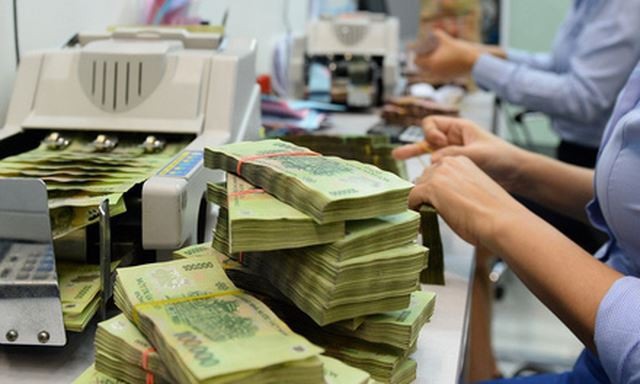A report from the Ho Chi Minh Securities Company shows that bank interest rates have risen by 0.46 percentage points for short-term loans since the end of last year to 7-9 per cent and to 9-12.5 per cent for medium- and long-term loans.

A report from the Ho Chi Minh Securities Company shows that bank interest rates have risen by 0.46 percentage points for short-term loans since the end of last year to 7-9 per cent and to 9-12.5 per cent for medium- and long-term loans.
The report named lenders such as Agribank, Military Bank, Sacombank, VP Bank and ACB as adjusting their rates upwards in the last two months.
The interest rate hikes are said to be the first sign of the central bank trying to reduce money supply to fight inflation.
According to experts from the Ministry of Planning and Investment’s National Centre for Socio-economic Information and Forecast, inflation and exchange rates remain under control but are under great pressure, and so prudent monetary policies are needed to curb inflation, especially demand-pull inflation.
They have pointed out that Viet Nam still faces many challenges, including pressure from the appreciation of the US dollar against other currencies including the dong after the US Federal Reserve raised interest rates in June and September and signalled there is one more hike to come later this year.
Vietnamese lawmakers have decided to hike the environmental tax on a number of commodities from January 1 next year. The hikes will focus on petroleum products, coal, plastic bags and certain others.
In the current context of increasing global energy prices, the imposition of environmental protection tariffs is expected to cause cost-push inflation.
The Viet Nam Institute for Economic and Policy Research expects the inflation rate in 2019 to exceed the 4 per cent target set by the Government and National Assembly in recent years.
In face of the rising inflation, the central bank has no other option but to adopt a tight monetary policy and so it has refused banks’ demand to increase their credit growth caps.
Following this, many banks increased their lending interest rates.
With bank credit set to become increasingly scarce what are the other options for enterprises seeking funds?
Overseas borrowing
According to the State Bank of Viet Nam’s Banking Strategy Institute foreign debts incurred by businesses are an important part of the nation’s foreign debts, which are now equivalent to 49 per cent of gross domestic product.
Last year, for instance, Vietnam Beverage borrowed $5 billion to buy Sabeco shares, which led to the increase in the total foreign debts of the nation.
The increase in foreign debts of businesses impacts not only the nation’s debt safety norms but also its and enterprises’ ability to borrow.
Corporate bonds
Speaking about other sources of capital such as corporate bonds and peer to peer lending (P2P), experts said the size of the Vietnamese bond market remained small, equivalent to only 6.19 per cent of GDP, with the biggest issuers being banks.
Non-banking firms could not attract the same interest from investors who think bank bonds are more profitable and safer.
P2P lending
P2P lending is considered a modern and practicable source of capital but in Viet Nam it is full of risk, according to the experts.
P2P lending is the practice of lending money to individuals or businesses through online services that match lenders with borrowers. Lending amounts are usually small and the tenor is usually between one month and two years.
The experts said through this model lenders could earn higher returns than from banks while borrowers could get money at lower rates. But there would be a major risk of payment default since P2P lending does not require any collateral.
Besides, it would be also a fertile ground for high-tech crimes, they said.— VNS





